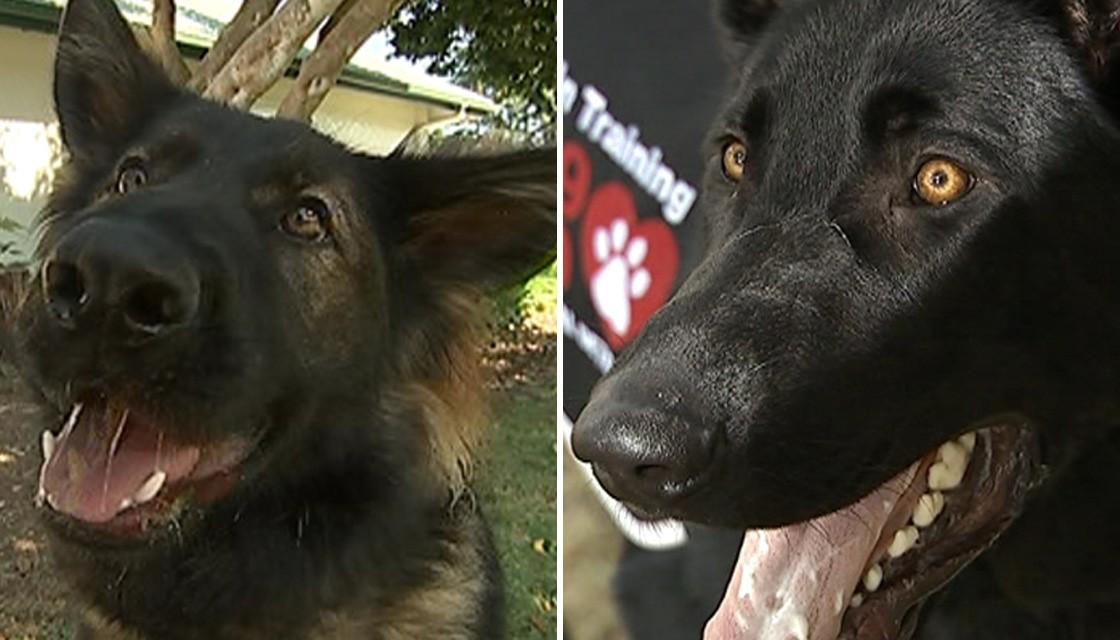Just like any other dog, German shepherds Frieda and Levi love nothing more than a good sniff.
But these two are a bit more special than a regular dog. They're both training hard so they can hit the streets as New Zealand's first prostate cancer-sniffing detector dogs.
The K9 Medical Detection (K9MD) programme is New Zealand's first effort to train dogs to sniff out the cancer, based on overseas research.
- NZ's cancer death rates worse than Australia's due to medicine inaccessibility, oncologist says
- 'It hasn't hit me yet': Kiwi cancer patient 'pretty chill' despite terminal diagnosis
- Maps show New Zealand's cancer hot-spots
- Ultrasound to diagnosis in an hour: Auckland's speediest cancer clinic
New Zealand's cancer statistics are grim.
"We have 63 people in New Zealand every day diagnosed with cancer, we have one male dies every day with prostate cancer, we have one woman dies every two days with ovarian cancer," K9 Medical Detection founder Pauline Blomfield told Newshub.
"If I can train dogs that's going to put a dent in those statistics, then [it's important]."

The team behind K9MD told Newshub prostate cancer was picked because Kiwi men are often reluctant about getting themselves checked.
Current tests for prostate cancer can be invasive; biopsies and surgeries just to find out if there is a problem.
With Frieda and Levi on board, it could be as simple as peeing in a cup and sending it away.
"Dogs can be taught to find anything," Hamilton-based trainer Peter Crocker said.
"I think they're a little misunderstood - people think they're a nice pet, something a bit of fun to have around, but they're very capable of doing any number of things.
"We can put Frieda over the samples and if she detects something, we can refer that person to their GPs for a follow-up."

While it's hoped to be easier than other diagnostic tests, don't expect to see the dogs wandering hospital corridors any time soon.
They'll be trained to sniff out the prostate cancer cells in urine samples from patients.
It's their sharp noses that make these pups perfect for the job.
"Dogs can detect a teaspoon of sugar in two Olympic-sized swimming pools, they can detect things no humans could," Otago University's Professor Sarah Young said.
"We think that we can use dogs to pick up volatiles in urine and other clinical samples, that will enable us to detect some diseases much easier."
Their powerful noses have already seen dogs being enlisted in other detection duties across the country.

"If you look at biosecurity dogs, they can detect hundreds of different odours from apples, right through to meat, reptiles, plant material... so I believe she'll be able to do several different types of cancers," Mr Crocker said.
Frozen prostate cancer cells are being sent up to the Hamilton centre from Otago University. There, Mr Crocker takes over and works on training Frieda to identify the scents.
"If she sniffs the samples of the cancer cells, we get her to sit and reward her with food or a toy. We repeat that over and over again until she understands what she's there to find."
It's a long journey, expected to take more than two years.

"Hopefully at the end we'll have a dog who can pick up prostate cancer in urine with a very high rate of specificity," Prof Young said.
"Cancer is the number one cause of death in New Zealand. We know that the earlier you can detect cancer, the more likely it is you'll survive from it.
"This is about getting a test where we can detect really early so we can get people in and on the treatments they need to have in order to have good health outcomes."
It's hoped the dogs could be trained for other cancers in the future. Already the researchers are considering ovarian cancer as another because of its non-specific symptoms and its difficulty to detect.
"I want to make a difference to the general public. We want early detection," Ms Blomfield said.
And it doesn't hurt that the new face of prostate cancer testing could be man's furry best friend.
Newshub.

